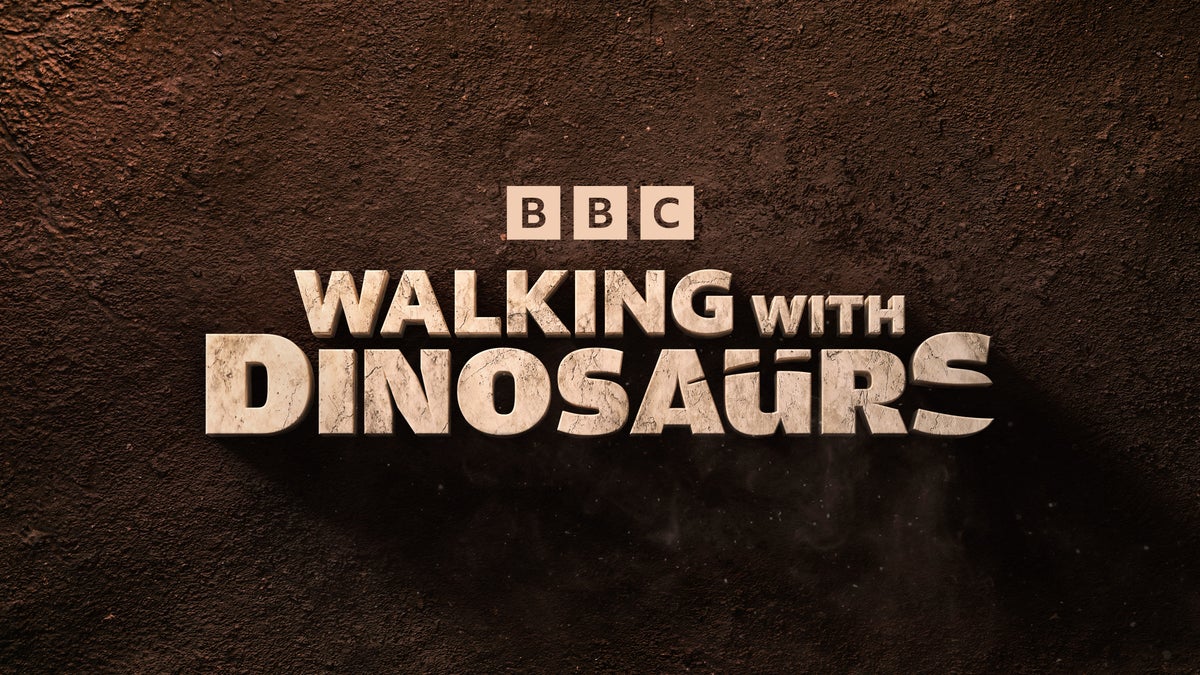
More than two decades after it first stomped across our TV screens, the acclaimed BBC nature documentary series Walking With Dinosaurs is returning.
In a six-part series, which arrives on BBC One and PBS in 2025, viewers will travel 220 million years back in time to tell the forgotten stories of long-lost giants.
Each episode will focus on the story of an individual dinosaur, whose remains are currently being unearthed by the world’s leading palaeontologists.
These include a Spinosaurus, the largest carnivorous dinosaur to ever walk the earth; a young Triceratops battling a ravenous Tyrannosaurus Rex in North America; and a Lusotitan risking it all for love in Portugal. The series promises to deliver the most up-to-date developments and discoveries in scientific research.
The original 1999 series was first narrated by Kenneth Branagh, before Star Trek’s Avery Brooks replaced him when the series began airing in North America on the Discovery Channel in 2000.
The show was seen as a pioneer in the making of scientific documentaries, since it used computer-generated images and animatronics to create the visuals for its factual storylines, with many of the visual effect techniques inspired by Steven Spielberg’s 1993 film Jurassic Park.
The producers, however, faced financial challenges at the time, given the high cost of visual effects at the turn of the century. Still, the show became the most-watched factual science programme on British TV of the 20th century, with 15 million people tuning in to watch the first episode.
Walking With Dinosaurs went on to win two Baftas, three Emmy Awards, and a Peabody Award. Not only was it praised by viewers for its informative nature and captivating stories, but it was also widely recognised by the science research community for its depth of information and portrayal of dinosaurs as animals, rather than the destructive and fearsome monsters seen in movies.
Its success spawned the Walking With… franchise made by the BBC’s science unit, which led to Walking with Beats (2001), Walking with Cavemen (2003), Sea Monsters (2003) and Walking with Monsters (2005).

Watch Apple TV+ free for 7 days
New subscribers only. £8.99/mo. after free trial. Plan auto-renews until cancelled

Watch Apple TV+ free for 7 days
New subscribers only. £8.99/mo. after free trial. Plan auto-renews until cancelled
The show went on to inspire a 2013 film of the same name, as well as a £10m touring production featuring 15 robotic creatures, which toured the UK and North America on the show’s 10th anniversary in 2009.
Jack Bootle, BBC Head of Commissioning, Specialist Factual, said in a statement that the broadcaster is excited to introduce a new generation of viewers to the hit series that first aired 25 years ago.
“The original series was one of the most exciting factual shows of all time, and this reinvention builds on that amazing legacy,” said Bootle.
“Each episode is underpinned by the very latest science but is also filled with drama – making this a series for both dino lovers and people who just want to be told a great story."
Sylvia Bugg, PBS Chief Programming Executive and General Manager, General Audience Programming, said that the human fascination with dinosaurs has never declined, and that the PBS audience will get to witness these newly unearthed stories, “combining engaging narratives, backed by the latest science”.
Andrew Cohen, Head of BBC Studios Science Unit, added: "There is no bigger science series than Walking with Dinosaurs and we are incredibly excited to be bringing this much-loved brand to a whole new generation of audiences around the world. It’s the ultimate dinosaur show, where you’ll be hiding behind the sofa one moment and having your mind blown the next.
“The prehistoric world meets premium documentary production, like never before."







